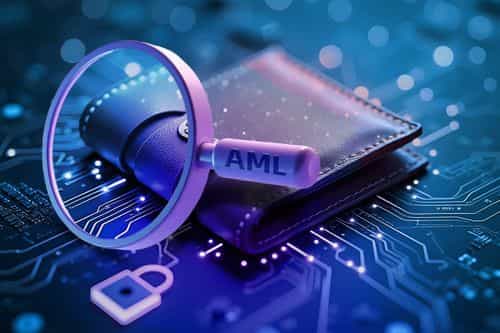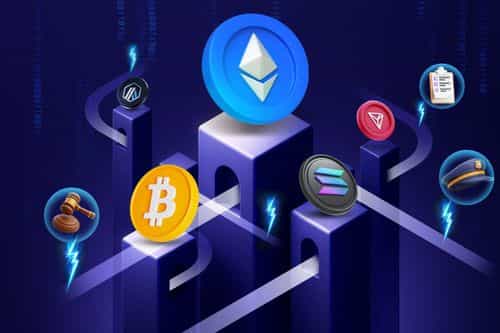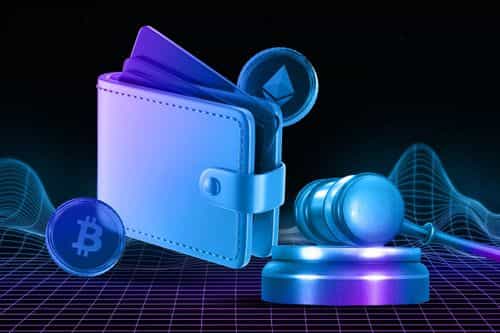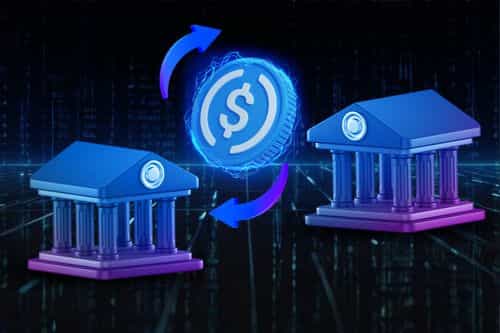Web3 Security
Secure your assets in the global Web3 ecosystem, whether on DEX, CEX, or other blockchain-based platforms worldwide. Trustless doesn’t mean risk-free!

Tips and tutorials
There are lots of security tips that users should be aware to stay secure, needed tutorials are also prepared to get well-educated in crypto security!

Troubleshooting Common MetaMask Issues
MetaMask is one of the most widely used crypto wallets and Web3 gateways. It supports Ethereum and other EVM-compatible blockchains, enabling access to dApps, token swaps, DeFi protocols, and NFTs. However, MetaMask isn't without flaws. Users regularly encounter issues like stuck transactions, incorrect nonce values, and connection failures. In this comprehensive guide, we’ll walk you through technical solutions to the most common MetaMask problems. From gas fee errors to RPC mismatches and mobile glitches, this article ensures you can transact confidently and securely, especially if you're using multi-chain bridges and platforms like Rango Exchange.

What is KYC & Why KYC?
As money becomes more digital, so do the risks. That’s where Know Your Customer (KYC) comes in. Whether it’s fiat or crypto, the challenge today isn’t just moving capital, it’s making sure it’s clean, traceable, and accountable. KYC is a foundational element in preventing illicit activity and establishing legitimacy in finance and crypto ecosystems. Governments and businesses worldwide enforce KYC standards to protect the integrity of their financial systems.
Guardian Mode
Learn essential strategies to protect your private keys, secure your crypto wallets, and ensure your digital identity remains safe in the crypto world.

KYC Rules for Crypto Exchanges & Wallets
KYC (Know Your Customer) has evolved from a signup annoyance to a core control for crypto platforms. It’s no longer just about identity checks at account creation; it’s a continuous risk workflow affecting deposits, withdrawals, and on-chain transfers. In recent years, licensing for crypto-service providers has expanded, and payment transparency requirements (the “Travel Rule”) have tightened. Friction is now focused on key moments like fiat funding, large withdrawals, or transfers to specific counterparties. The full article emphasizes that where KYC appears is just as crucial as whether it exists.

Anti-Money Laundering (AML) Rules & Crypto Wallets
Anti-money laundering (AML) rules that were initially designed for banks and payment processors are now being applied to crypto wallets with increasing precision. As regulatory expectations harden, crypto wallet providers are being treated less as neutral software and more as access points to the financial system. It is often assumed that only exchanges are affected, yet wallet design, custody model, and governance all determine how AML regulations will attach. The discussion below sets out how AML requirements are mapped to different types of wallets and why careful implementation now tends to reduce future operational risk.

Crypto Market Liquidation Crisis:$500Billion Wiped
The cryptocurrency market faced a catastrophic event in October 2025, with over $500 billion in market capitalization erased in just a few hours. This financial collapse resulted from a combination of geopolitical triggers, leverage, and forced liquidations, which created a massive ripple effect throughout the entire market. In this article, we break down the critical factors that led to the market rout and how different cryptocurrencies, including Bitcoin and Ethereum, were impacted.

Cross-Chain Aggregators & Regulatory
Cross-chain aggregators have become vital tools for enabling seamless interaction between different blockchain networks. These platforms enable the seamless transfer of assets across multiple blockchains, eliminating the need for intermediaries and allowing users to exchange assets or interact with various ecosystems. But as with all new financial technologies, the question arises: Do cross-chain aggregators need regulatory approval? In this article, we’ll explore how cross-chain aggregators function, the regulatory challenges they face, and the possible need for regulatory approvals.

Blockchain & Financial Crimes
Financial crimes, including money laundering, fraud, and corruption, continue to erode the integrity of economies and financial systems worldwide. Governments are under increasing pressure to enhance their tracking and enforcement measures to combat these illicit activities. Blockchain technology has emerged as a groundbreaking solution due to its decentralized, transparent, and immutable nature. With its capability to provide real-time transaction monitoring, data integrity, and automation, blockchain offers a robust tool for governments to enhance financial crime detection and prevention. In this article, we will examine how blockchain can assist governments in detecting and combating financial crimes, as well as the technological innovations that make it a valuable asset in the fight against illicit financial activity.

On-Chain Data Analysis & Crypto Scams
As crypto adoption accelerates, so do the high-stakes scams that exploit its speed, anonymity, and global reach. In 2024 alone, crypto scams cost users over $9.9 billion, and early 2025 added another $2.5 billion in losses due to wallet compromises and phishing. On‑chain analysis has emerged as a critical defence, enabling real-time detection through transparent, immutable blockchain data. This guide dives deep into the mechanisms of on-chain forensics, how AI tools trace crypto scam flows, and the future of fraud prevention across chains.

Guide to Crypto Wallet Regulations
As cryptocurrencies mature, crypto wallets, the tools used to store and transfer digital assets, have become central to regulatory scrutiny. Wallet regulations now extend far beyond basic licensing; they touch on anti-money laundering (AML) compliance, Know Your Customer (KYC) protocols, and cross-border transfer rules. This guide covers the global regulatory landscape, including leading jurisdictions like the US, EU, UK, Asia, and Australia, and explores the challenges and direction of wallet compliance in 2025.

User Privacy Under CEX Regulations
As cryptocurrencies gain global traction, Centralized Exchanges (CEXs) have become essential hubs for traders, whether seasoned or just starting out. However, as governments tighten regulations around digital asset trading to combat financial crime and ensure investor protection, concerns around user privacy are rising. Regulations such as Know Your Customer (KYC), Anti-Money Laundering (AML), and international data sharing mandates may enhance security, but at what cost? In this article, we explore how CEX regulations influence user privacy, the balance between compliance and personal freedom, and how users can protect themselves in an increasingly regulated crypto environment.

Crypto Taxation Laws
The rapid growth of cryptocurrencies has sparked excitement, and regulatory challenges, around the globe. From Bitcoin to stablecoins, these digital assets are now a critical part of many financial portfolios. However, as crypto adoption grows, so does the need for clear and transparent crypto tax regulations. Governments are working to catch up, aiming to define how these assets should be classified and taxed. Whether you're a casual investor, a full-time trader, or a DeFi enthusiast, understanding how crypto is taxed in your region is vital to avoid penalties and optimize your strategy.

Is Metamask safe under new crypto laws?
As the cryptocurrency landscape continues to grow and evolve, regulatory changes are becoming more frequent. With these changes come important questions about the safety of using popular Web3 tools like MetaMask. MetaMask, a widely-used non-custodial wallet, allows users to interact with decentralized finance (DeFi) platforms and manage their digital assets securely. However, with the introduction of new crypto security policies globally, many crypto users are asking: Is MetaMask still safe to use? In this article, we’ll explore how MetaMask stands up to the latest crypto regulations, what these changes mean for its security, and how users can ensure their digital assets remain safe.

How Rango Exchange enhances speed and security in crypto transactions?
Speed and security are essential factors that can significantly impact user experience. Whether you're an investor, trader, or DeFi enthusiast, knowing a platform that combines both efficiency and safety is crucial. Rango Exchange, a leading decentralized exchange (DEX) and bridge aggregator, offers a unique solution to address these challenges by enhancing the speed and security of crypto transactions. In this article, we’ll explore how Rango Exchange achieves this and why it is a game-changer in the world of Web3 security.
Compliance guide
Navigate key legal and regulatory frameworks in crypto to ensure compliance with industry standards and legal requirements.

The Legal Challenges of Running a DAO
It is often assumed that a DAO exists “outside the system” because coordination is performed by smart contracts rather than by executives, boards, or signed resolutions. That assumption has been weakened as on-chain treasuries have grown, governance tokens have been traded liquidly, and real services have been procured from traditional vendors. Legal pressure has not been triggered by decentralization as an idea, but by the growing number of interfaces where a DAO touches banks, exchanges, cloud providers, app stores, and end users. It may be tempting to treat legality as an after-market concern, yet it has increasingly been observed that legal design choices function like protocol parameters: they shape risk, execution paths, and survivability. The full article below is worth reading because the sharp edges are usually found at the boundaries, not in the whitepaper.

Crypto for legal Cross-Border Payments
Cryptocurrencies are reshaping cross-border payments with faster settlement, lower fees, and programmable transparency, but they also introduce a thicket of legal questions. From AML/KYC duties and licensing to evolving rules under regimes like the EU’s MiCA and U.S. oversight, compliance now defines how and where crypto can move across borders. This article maps today’s regulatory landscape, contrasts permissive and restrictive jurisdictions, and surfaces real compliance risks and penalties. We also examine how banks and payment providers are responding with blockchain rails while navigating volatility and supervision. Finally, we explore why international cooperation is essential to unlock safe, scalable, and compliant global crypto payments.

Licensing Requirements for Crypto Exchanges
In 2025, launching a crypto exchange without the proper licensing is no longer just risky, it’s nearly impossible. Global regulators, from the European Union to the United States, have adopted more sophisticated frameworks, such as the MiCA Regulation and the GENIUS Act, to enforce compliance, transparency, and consumer protection. Whether you operate a centralized or decentralized exchange, understanding and acquiring the appropriate licenses is now essential to legitimacy, scalability, and legal operation. This article provides a practical guide to global licensing requirements, key jurisdictional updates, and how to secure a license the right way.
CEX Radar
Monitor the movements of top central exchanges and their market influence. Follow key performance metrics and data stories powering the evolution of Web3 trading.

How to Make Your First Trade on Coinbase
Entering the cryptocurrency market often begins with a first trade on a centralized exchange, where the onboarding sequence can influence both risk exposure and user confidence. Coinbase is frequently chosen for its structured account flow and visible trade execution steps, yet it was observed that a lack of familiarity with verification, funding rails, and order types can lead to avoidable errors. This tutorial documents the typical sequence of actions required to complete a first trade on Coinbase, with attention to operational habits that reduce mistakes, such as small test transactions and careful review of preview screens. The goal is to provide you a technically precise roadmap that can be followed with minimal assumptions about prior experience.

The Benefits of Using Binance for Futures Trading
It is increasingly observed that traders who move beyond simple spot markets seek greater capital efficiency and more flexible hedging tools. On major exchanges, margin trading and crypto derivatives are used to achieve this, but the associated risk and complexity can be significant. Binance is frequently selected for this purpose because margin and futures products are integrated into a large, liquid ecosystem rather than existing as a separate niche. To understand whether the Binance margin trading benefits and the advantages of futures trading on Binance justify the added complexity, the main mechanisms, costs, and safeguards need to be examined carefully in one place, as is done in the full article below.

Coinbase vs. Binance: Best Crypto Exchange for You
In most retail and institutional setups, the choice between Coinbase and Binance is now treated as a primary crypto exchange comparison rather than an afterthought. Both platforms handle billions in daily volume and are integrated into broader market infrastructure, yet their risk profiles, fee structures, and user flows differ in important ways. It may be tempting to assume that “bigger is better,” but a different pattern is usually observed: which is better, Coinbase or Binance depends strongly on fee sensitivity, regulatory comfort, and the depth of tools that are actually used. These differences are unpacked below so the full article can be read as a practical map rather than a ranking.

What is Centralized Finance (CeFi)?
Centralized Finance (CeFi) refers to financial services operated by centralized entities, where a third‑party intermediary manages the custody, transactions, and processes of users’ assets. This model contrasts with decentralized finance (DeFi), where intermediaries are replaced by code and blockchain protocols. While CeFi offers familiarity and stability, it comes with unique risks, especially relating to security, governance, and operational failures. Understanding how CeFi protocols and platforms operate is essential for crypto users, investors, and anyone involved in digital finance. In this article, we will examine CeFi’s architecture, its market structure, advantages, disadvantages, and risks, as well as a comparison to DeFi.

Binance & Global Crypto Market
Binance, founded in 2017, quickly became one of the most influential platforms in the crypto ecosystem. With its advanced trading tools, diverse product offerings, and strategic global expansions, Binance has played a pivotal role in shaping the evolution of centralized cryptocurrency exchanges. Through continuous innovation and adaptability, Binance has transformed how users trade, invest, and interact with digital assets.

Coinbase: Leading Regulated Crypto Exchanges
The cryptocurrency industry has evolved from a fringe innovation into a trillion-dollar global marketplace. Yet, with growth comes complexity: governments demand tighter oversight, investors require stronger protections, and institutions only engage when regulatory clarity is present. In this landscape, Coinbase has emerged as the leading regulated crypto exchange, shaping not only how digital assets are traded but also how trust in this industry is built. This article explains why regulation matters, how Coinbase has set the standard, and what its future vision means for the global crypto ecosystem.

Binance, Leading Cryptocurrency Exchange
Since its launch in 2017, Binance has become the world's largest cryptocurrency exchange by trading volume, serving over 100 million users. Its growth trajectory has been defined by rapid technological innovation, regulatory navigation, and a deeply user-focused approach. This article examines the distinctive strategies, tools, and decisions that have propelled Binance to a position of global dominance.

Risks of Using Centralized Exchanges
Centralized cryptocurrency exchanges (CEXs) have played a crucial role in the widespread adoption of digital assets, providing user-friendly platforms for trading and investing. However, entrusting these platforms with your assets introduces several risks that can compromise your financial security. Understanding these risks is crucial for any crypto investor aiming to protect their investments. Let's delve into the primary risks associated with centralized exchanges and explore strategies to mitigate them.
Frequently asked questions
Check out most commonly asked questions, addressed based on community needs. Can't find what you are looking for?
Contact us, our friendly support helps!
What is Web3 security?
Web3 security refers to the practices and technologies that protect digital assets and users in decentralized applications (dApps) and the broader Web3 ecosystem, including blockchain, smart contracts, and cryptocurrencies.
What are private keys, and why are they important for my security?
Private keys are cryptographic keys used to access and manage your cryptocurrency or digital assets. They are crucial for security because anyone who has access to your private key can control your funds, making it important to keep them secure and never share them.
How can I avoid cryptocurrency scams?
To avoid cryptocurrency scams, always verify the legitimacy of platforms or offers, never share your private keys, use two-factor authentication in any dapp or wallet that provides the feature, and be cautious of offers that seem too good to be true, such as high-return investments or unsolicited offers.
